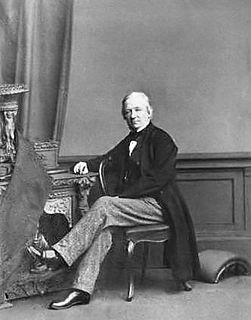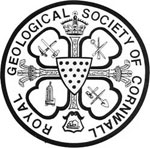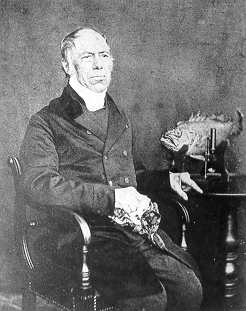William Bottrell (1816–1881) was born at Rafta, St Levan in Cornwall on 7 March 1816. He contributed greatly to the preservation of Cornish mythology. Both he and Thomas Quiller Couch contributed folk stories of West Cornwall for Robert Hunt's Popular Romances of the West of England, published in 1865. [1]

St Levan is a civil parish in Cornwall, England, United Kingdom. The parish is rural with a number of hamlets of varying size with Porthcurno probably being the best known. Hewn out of the cliff at Minack Point and overlooking the sea to the Logan Rock is the open-air Minack Theatre, the inspiration of Rowena Cade in the early 1930s.

Cornish mythology is the folk tradition and mythology of the Cornish people. It consists partly of folk traditions developed in Cornwall, England, and partly of traditions developed by Britons elsewhere before the end of the first millennium, often shared with those of the Breton and Welsh peoples. Some of this contains remnants of the mythology of pre-Christian Britain.

Robert Hunt was a British mineralogist, as well as an antiquarian, an amateur poet, and an early pioneer of photography. He was born at Devonport, Plymouth and died in London on 17 October 1887.
Although Bottrell's contributions were acknowledged in Hunt's introduction to the book (his name given there as Botterell), there was no individual acknowledgement for each story, which was the case for Couch's contributions. The "Cornish Telegraph" invited Bottrell to write his own versions for their newspaper. These were published between 1867 and 1869 and then published as Traditions and Hearthside Stories of West Cornwall in 1870. [2]
Hunt and Bottrell were both intent on preserving the old legends but Bottrell's stories were generally much longer than similar versions published by Hunt, reflecting the way the old story tellers, known as "droll tellers", embellished the basic tales to increase the entertainment value.
A second series of Traditions and Hearthside Stories of West Cornwall was published in 1873, included the first recorded version of the Mermaid of Zennor. [3] In 1880, a third series was in preparation when Bottrell had a stroke that left him unable to write. A shorter than intended volume was completed as Stories and Folk-Lore of West Cornwall [4] with a preface by Rev. W. S. Lach-Szyrma, which included much that had been previously published. Bottrell died in St Ives on 27 August 1881 and was buried in St Levan churchyard.

The Mermaid of Zennor is a popular Cornish folk tale that was first recorded by the Cornish folklorist William Bottrell in 1873. The legend has inspired works of poetry, literature and art.

The Reverend Wladislaw Somerville Lach-Szyrma, M.A., F.R.H.S. was an English curate, historian and science fiction writer. He is credited as one of the first science fiction writers to use the word Martian as a noun.

St Ives is a seaside town, civil parish and port in Cornwall. The town lies north of Penzance and west of Camborne on the coast of the Celtic Sea. In former times it was commercially dependent on fishing. The decline in fishing, however, caused a shift in commercial emphasis, and the town is now primarily a popular seaside resort, notably achieving the title of Best UK Seaside Town from the British Travel Awards in both 2010 and 2011. St Ives was incorporated by Royal Charter in 1639. St Ives has become renowned for its number of artists. It was named best seaside town of 2007 by The Guardian newspaper. It should not be confused with St Ive, a village and civil parish in south-east Cornwall.









